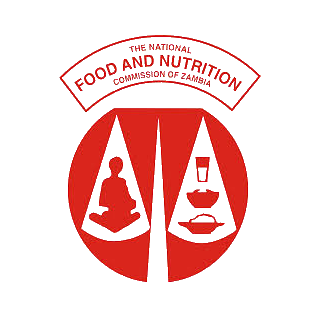PRESS RELEASE
NATIONAL FOOD AND NUTRITION COMMISSION CALLS ON DECISION MAKERS
AND CITIZENS TO RALLY FOR “GLOBAL SOLIDARITY” TO MAINTAIN ESSENTIAL
HIV SERVICES IN COMMEMORATING WORLD AIDS DAY.
LUSAKA (Tuesday, 1st December 2020)
This World AIDS Day celebrated on 1stDecember 2020, the National Food and Nutrition Commission of Zambia calls on decisionmakers and citizens to rally for “global solidarity” to maintain essential HIV services for a
healthy nation.
The global theme for this year’s World AIDS Day is, “Global solidarity, resilient
services” which aims to call to focus on vulnerable groups who are already at risk and
expand coverage to children and adolescents.
Zambia has a generalized HIV epidemic fueled by structural factors, gender and social
norms, unequal distribution of wealth and unemployment. The Zambia Demographic
Health survey (2018) reveals that overall, 11.1% of adults age 15-49 in Zambia are HIV
positive. HIV prevalence is higher among women than men (14.2% versus 7.5%).
A massive effort is needed to cushion the impact of the epidemic, and nutritional care and
support should be integral elements of any action taken. The National Food and Nutrition
Commission is therefore recommending the scaling up of nutrition care and support to
people living with HIV/AIDS by;
Increasing awareness on recommended nutrition interventions for people living with
HIV/AIDS; How to manage interaction between food and drugs used to treat HIV;
consumption of a variety of local nutritious foods and recommended nutrition interventions
for people living with HIV/AIDS.
National Food and Nutrition Commission Acting Executive Director, Mr. Musonda Mofu
says, “People living with HIV have an increased risk of malnutrition because of reduced
food intake, reduced nutrient absorption, and reduced nutrient utilization.
Malnutrition weakens the immune system, which worsens the effects of HIV, which
increases the likelihood of malnutrition. Because poor nutrition increases susceptibility to
opportunistic infections, it may speed up the progression from HIV to AIDS.
To ensure the wellbeing of people living with HIV, it is cardinal for people living with
HIV/AIDS to receive care and support services on nutrition for a healthy body particularly
in vulnerable groups including children and adolescents.”
He has since appealed to a broad coalition of actors including affected communities, local
and national governments, religious and social institutions, Non-Governmental
Organizations, the private sector and individuals to rise up to the call of global solidarity
to maintain essential HIV services for a healthy nation.
-END-
For more information, contact Communication and Advocacy Specialist, Barbara Hamoonga Ndhlovu;
jhamoonga28@gmail.com . Contact: +260 977425015


